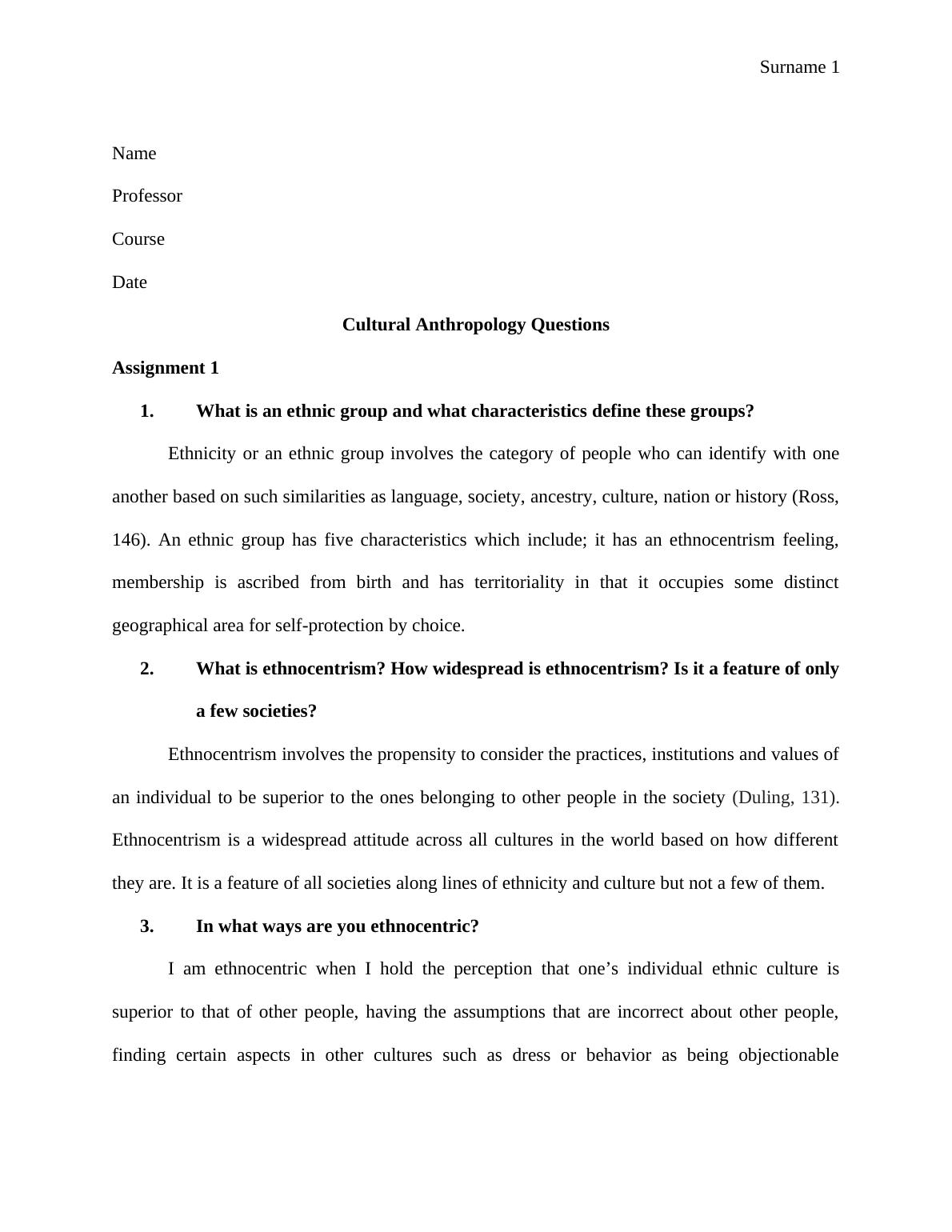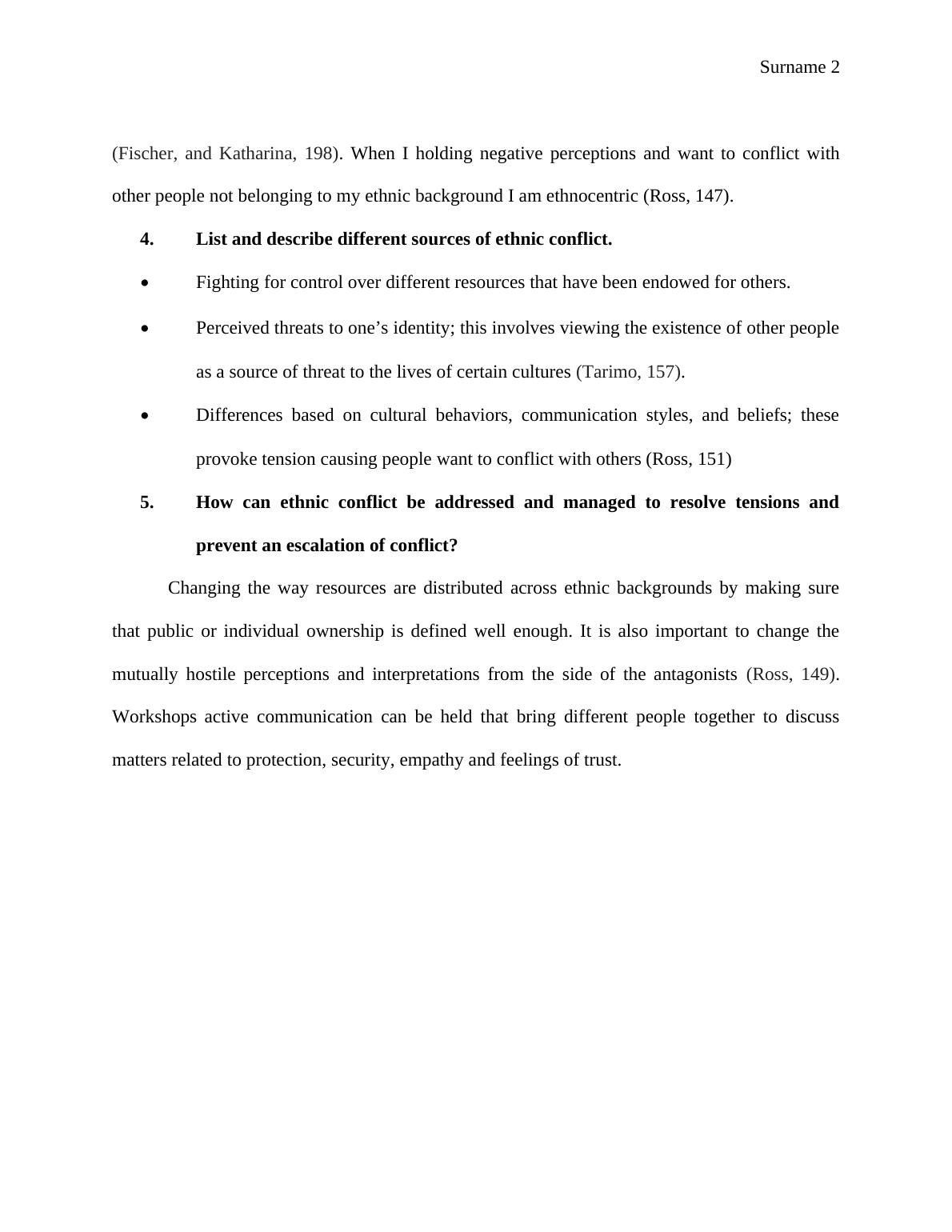Cultural Anthropology Questions
Added on 2022-12-28
5 Pages1021 Words30 Views
End of preview
Want to access all the pages? Upload your documents or become a member.
Cultural Relativism: Definition & Examples
|6
|972
|82
Racism and Ethnocentrism: Contributing Factors to Inequality in Australia
|10
|2827
|157
Racism Autobiography
|7
|1746
|203
Managing Culturalism and Diversity
|7
|1817
|193
The Cultural Competency and Social Justice
|10
|2268
|154
Diversity in the Workplace
|9
|2199
|48

